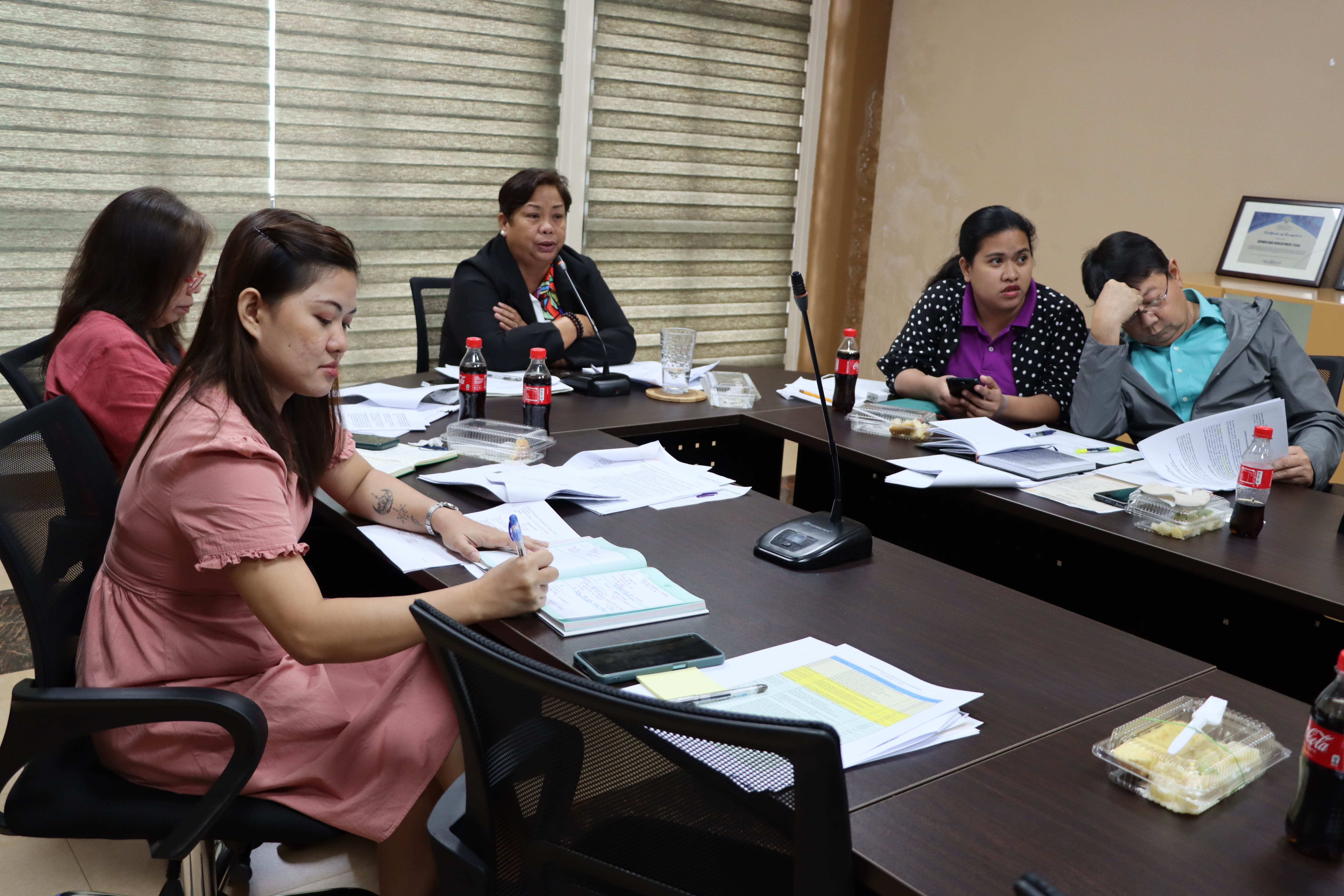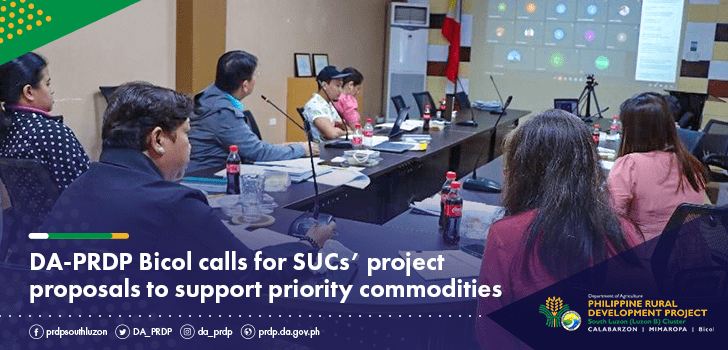
DA-PRDP Bicol calls for SUCs’ project proposals to support priority commodities
The Department of Agriculture – Philippine Rural Development Project (DA-PRDP) Regional Project Coordination Office (RPCO) Bicol announced its call for research, capacity building and convergence proposals for funding under the PRDP Planning at the Local and National Levels (I-PLAN) for CY 2024 implementation. During the DA-PRDP RPCO Bicol Subcomponent 1.2 Research Orientation for SUCs held via a hybrid meeting on January 25, 2023, DA-PRDP RPCO Bicol I-PLAN Component Head Aloha Gigi Bañaria underscored the state universities and colleges’ (SUCs) role in attaining the Project’s development objectives.
“With the value chain analysis and commodity investment plans cut across the value chain, not only on the production and post-harvest challenges and opportunities but also research, development and extension gaps were determined per particular commodity. This will be our entry point as PRDP not only establish and deliver tangible subprojects but supports our RDE efforts not only for the Department of Agriculture but for our key partner agencies of which your university or college can be eligible for financial assistance,” Bañaria stated.
DA-PRDP RPCO Bicol I-PLAN Planning Officer Engr. John Jeric Batanes oriented the participants about the PRDP components, structure, activities, tools and innovations, and status of implementation. He also cited some of I-PLAN’s key strategies in preparation for the upcoming implementation of PRDP Scale-Up. Meanwhile, DA-PRDP Project Support Office (PSO) South Luzon I-PLAN Component Head Jo-Marie Libarnes discussed the guidelines in the implementation of I-PLAN sub-component 1.2.
According to Libarnes, interested SUCs may propose research studies that will be responsive to the identified research gaps based on the approved value chain analysis (VCAs) and endorsed Provincial/City Commodity Investment Plans (P/CCIPs) and supporting and enhancing planning activities by the respective P/CLGUs. Proposals should also be aligned with the DA’s thrusts and strategic agenda from 2023 to 2028 to boost local production of key commodities and raise farmers’ and fisherfolks’ income, ensure access to affordable, safe, and nutritious food for all Filipinos, develop strong, modernized and climate resilient value chains, and institutionalize policy reforms and strengthen institution to enhance the agri-fishery sector’s efficiency and accelerate its modernization.
Proposed projects should amount to PhP1 million (M) and have a project duration of six to eight months. Proposals will be reviewed by the RPCO and PSO prior to the issuance of No Objection Letter.
Currently, DA PRDP RPCO Bicol has two completed PRDP I-PLAN 1.2 subprojects worth a total of PhP4.1-M. These are the Mangrove Resource Mapping and Stakeholders Engagement for Sustainable Crab Industry Development of the Catanduanes State University (CSU) in Virac, Catanduanes and the Pili Research-Based Technology Assessment and Geo-Mapping with the Bicol University in Legazpi City. Meanwhile, seaweeds profiling is still ongoing for the P1-M-worth Production and Technology Assessment of Seaweeds (ProTechASeaweeds) Project of the Camarines Norte State College (CNSC) in Daet, Camarines Norte while the two batches of Training of Trainers (ToT) and 11 batches Abaca Farmers Trainings for Catanduanes were already conducted last September to December 2022 as part of the P1-M-worth Capability Building Training on Good Agricultural Practices for Abaca with Focus on Disease Management of the Philippine Fiber Industry Development Authority (PhilFIDA) Regional Office V in Legazpi City.
Bañaria noted that Bicol has 15 commodities with VCAs issued with No Objection Letter (NOL) and seven CIPs covering six provinces and one component city. Among the commodities with PDC endorsement are coco geonets, sweet potato, pili, abaca, swine, native chicken and dairy cattle for Albay; coco geonets, pineapple, seaweeds, swine, and native chicken for Camarines Norte; cassava, coco sap sugar, swine, native chicken, abaca, pili, taro, and dairy cattle for Camarines Sur; and abaca, mangrove crablets, swine, native chicken, and dairy cattle for Catanduanes. For Masbate, commodities with PDC endorsement are coco charcoal, live goat, swine, biodiversity commodities, native chicken, dairy cattle, and seaweeds. Sorsogon has pili, seaweeds, abaca, swine, biodiversity commodities, native chicken and dairy cattle while Naga City has pili and swine.
DA RFO V Research Division Chief Corazon Orbon and the representatives from CatSU, CNSC, Partido State University Sorsogon State University, and Central Bicol State University of Agriculture (CBSUA) attended the activity. Also present were the Agricultural Program Coordinating Officers (APCO) of Camarines Norte, Masbate, Sorsogon and Catanduanes and the Assistant APCO of Albay.
DA-PRDP RPCOBicol is now accepting project proposals from interested SUCs. Approved proposals will be implemented in 2024 under the PRDP Scale-Up. (Annielyn L. Baleza, DA RAFIS V)
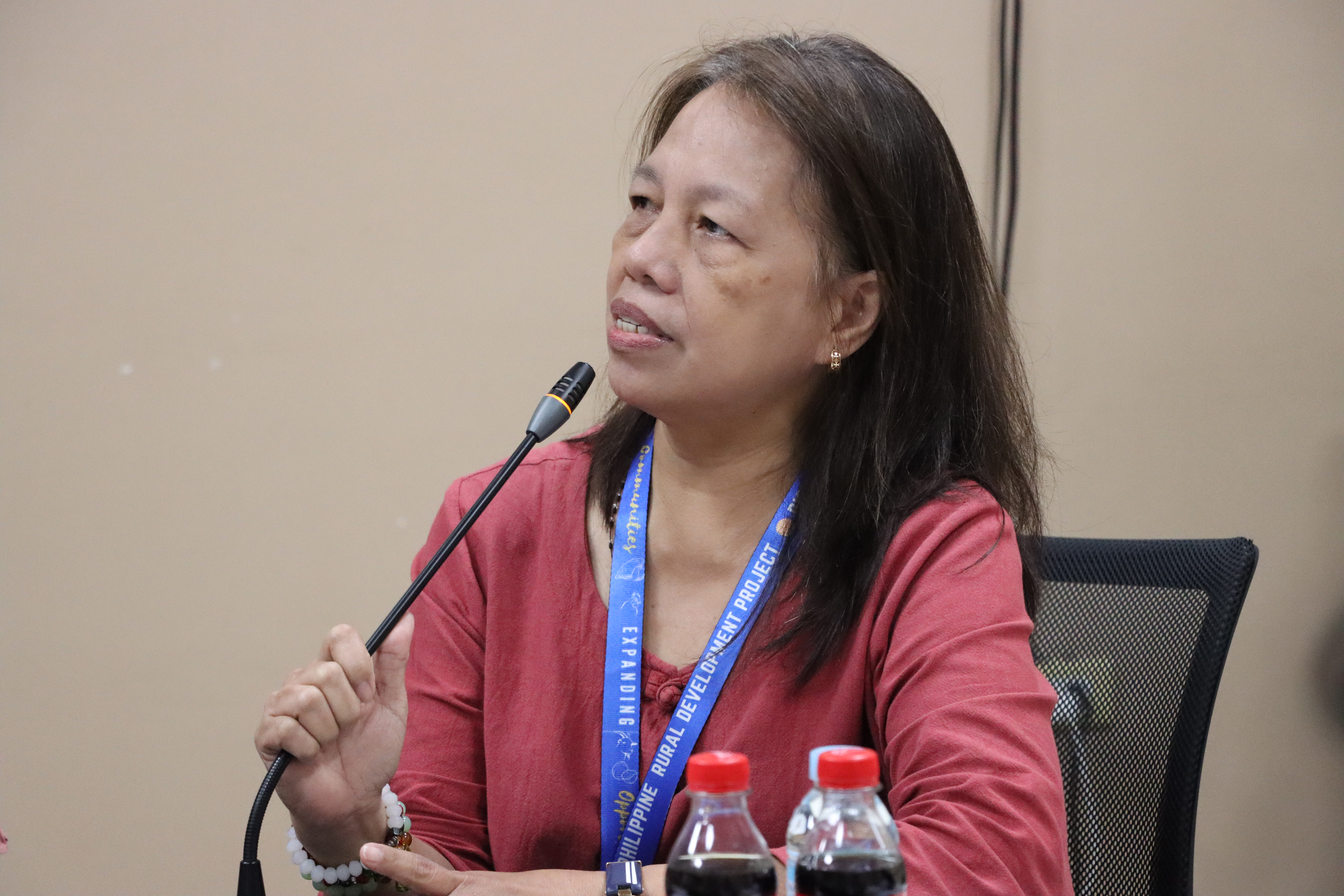
DA PRDP I-PLAN Bicol Planning Specialist Mary Ann Cuya encourages the SUCs and APCOs to partner with the Project in supporting the region’s priority commodities. She also assures the participants of the DA PRDP’s technical assistance in implementing strategies to secure funding for their proposed projects.
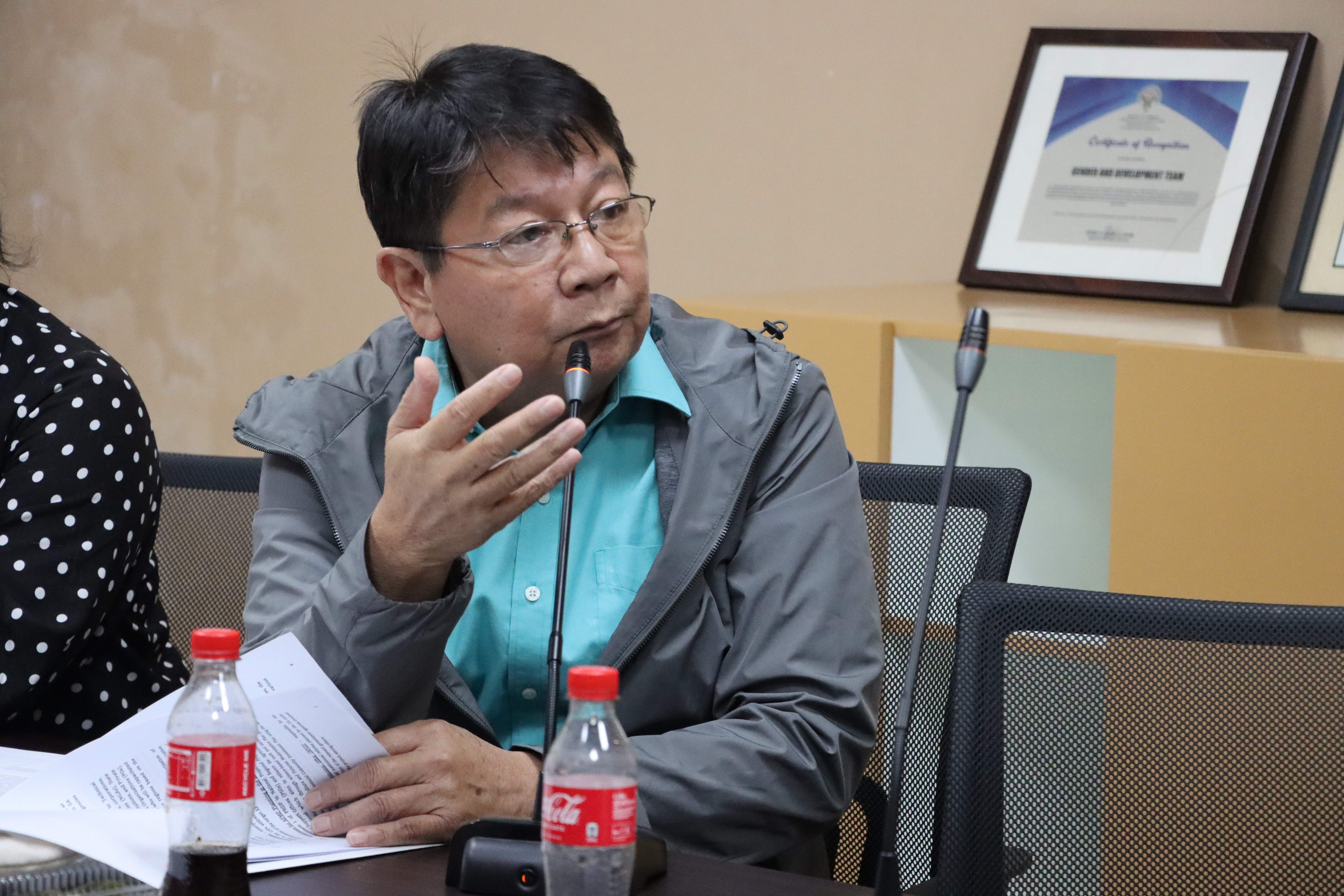
PRDP I-PLAN Bicol Planning Officer Peter Theodore Caro presents the synthesis of the PRDP I-PLAN Subcomponent 1.2 Research Orientation for SUCs
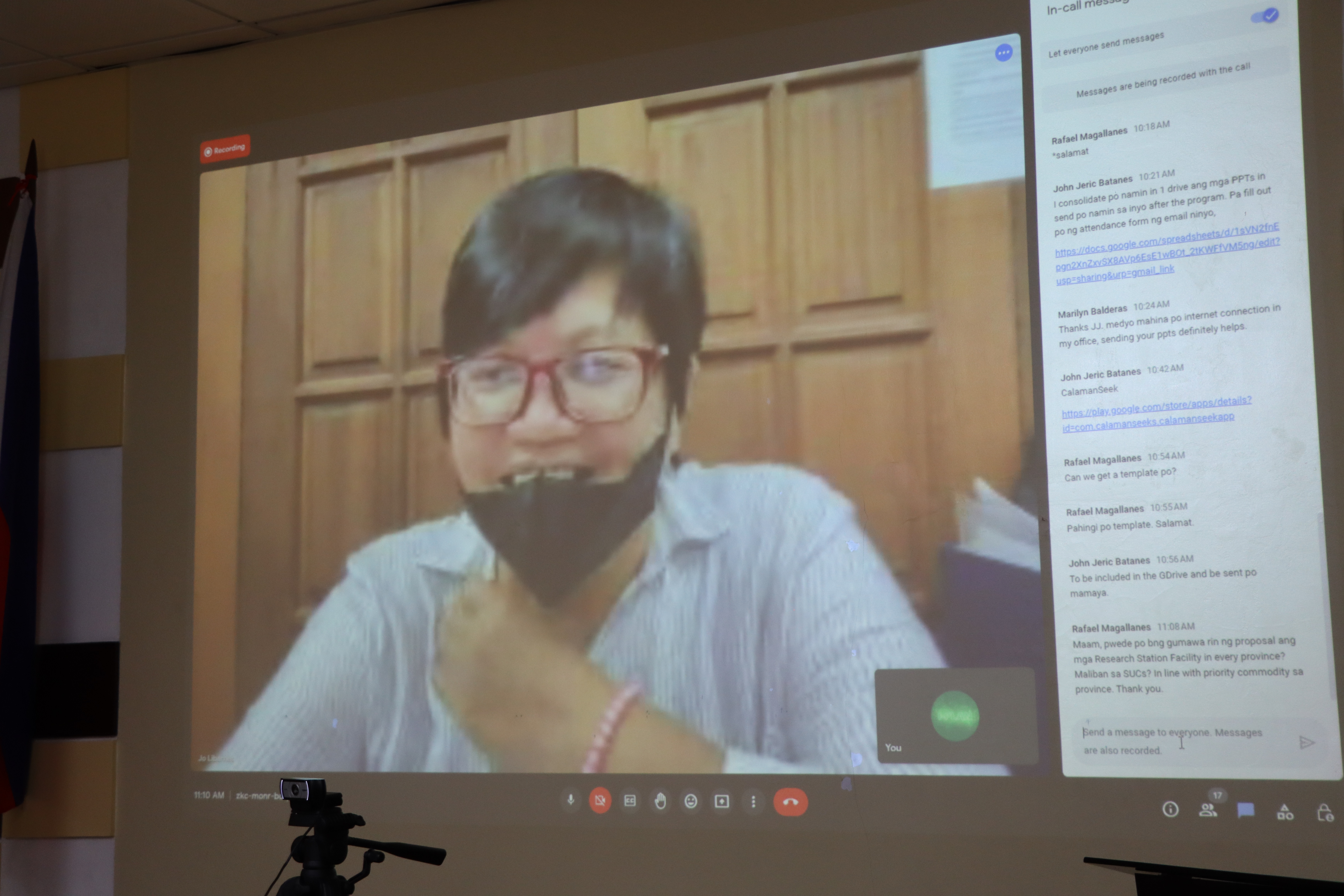
DA PRDP Project Support Office (PSO) South Luzon I-PLAN Component Head Jo-Marie Libarnes orients the participants on the guidelines in the implementation of I-PLAN sub-component 1.2.
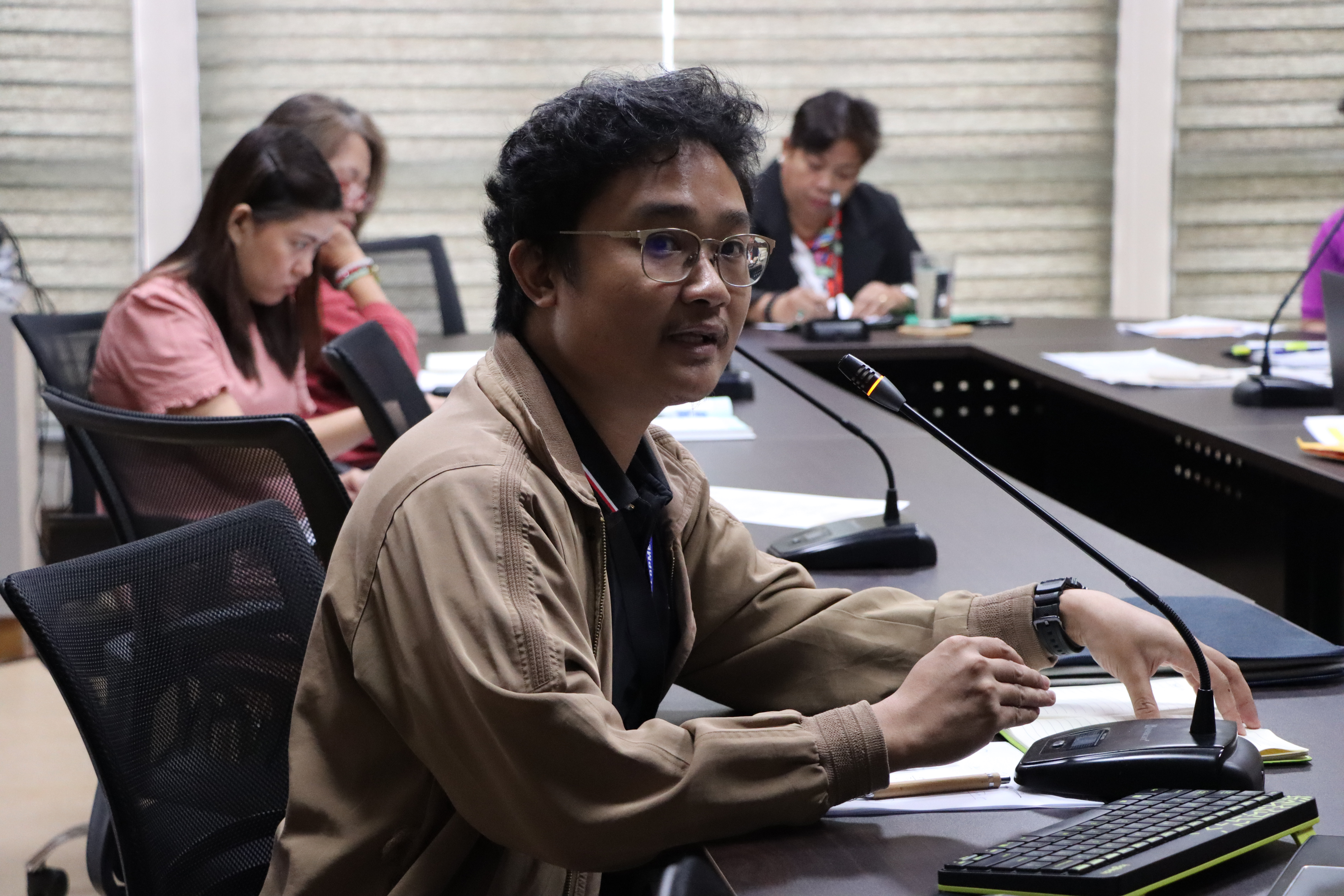
I-PLAN Bicol Planning Officer Engr. John Jeric Batanes discusses the rationale of the activity and PRDP project overview

